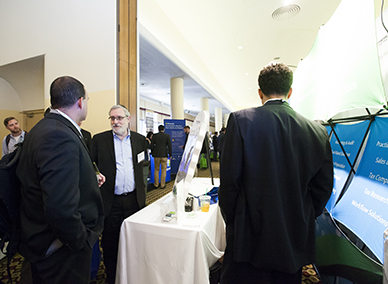The tone at July’s New York Accounting Show & Conference reflected a concern in the accounting profession about the commoditization of services and what CPAs will do when computers have taken over much of the day-to-day work. It appears an actual fear of irrelevancy hasn’t set in, although there are rumblings that this is coming. After all, it’s one thing to advance your practice by using tools that make your job easier and that leave you with more day at the end of your day. It’s another thing to stay awake at night worrying that your clients will no longer need you because they can just buy the software themselves.
There’s been talk in accounting circles for years about the importance of being someone clients can turn to for insights into how their businesses run and explanations of what all the numbers mean. This isn’t new. More than 15 years ago, David Maister, in his acclaimed book, The Trusted Advisor, warned of the tenuousness of having only a transactional view of clients instead of a relationship view.
Think about how many of your clients connect with you only once a year. How many do you not see at all? I myself have a tax practice where a few clients send me their data and I never even meet with them in person. How easy would it be for someone else to step in and take my place? Whoosh. That fast.
So it seems that relevance is the issue of the day. Are you worth your salt? Say we reach that time, in the very near future, when all of the number crunching is automatic. When what you’re selling is no longer financial statements and tax returns. Don’t think your everyday client is going to pay for you to point to the numbers and say, “Yep, those numbers are correct. Here’s my bill.”
Did you catch the flaw in the above statement? What we’re selling should never be nor should it ever have been financial statements and tax returns. If that’s what you’re doing, then congratulations for having gotten this far and having built a base of clients who want that. I don’t mean to sound, well, mean, but it’s really time to take another look at your practice.
Two sessions at the New York show really drove this home for me. Amy Vetter, global vice president of education and head of accounting USA at Xero teed us up with a session on how not shying away from technology and instead embracing all the cool tools that are out there will position a CPA firm to attract the best talent – and by best talent we don’t mean data entry people. The best colleagues you can find will be those who can empathize with your clients, see the real picture, and make the best recommendations for success.
It’s going to be those touchy feely Millennials who want to leave the office for yoga at 2 in the afternoon. The ones who realize that the things in life that make you you actually are important. Joe Woodard, CEO of Woodard Events and Woodard Consulting, followed up with a moving session on how the numbers are just the beginning of the story and it takes an experienced accountant to tell the rest of the story, to not wait for the financial statements that come in months after the year-end but to look at the numbers as they are right now, and then actually see the people behind the numbers who are putting their heart and soul into their business, and make the connection.
Give yourself some credit for having mastered the art of accounting and get busy reminding yourself, and your clients, of the value of your knowledge – the human side, if you will, of the numbers.
Thanks for reading CPA Practice Advisor!
Subscribe Already registered? Log In
Need more information? Read the FAQs
Tags: Accounting




